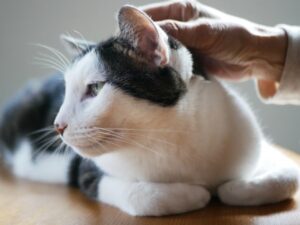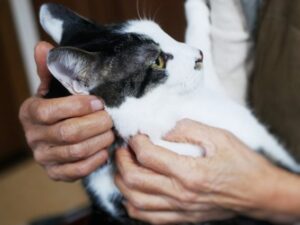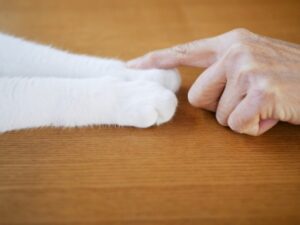Even in Senior Years, Enjoy Life with Cats! Points to Consider When Seniors Have Cats

Life with cats is enjoyable at any age. However, as one gets older, taking care of a cat may become challenging, and concerns about what might happen if something happens to oneself may arise, raising the hurdle of having a cat.
Nevertheless, with proper preparation, it is possible for seniors to have cats even in their later years.
This article explains the points to consider when seniors have cats.
1. Is it Difficult for Seniors to Have Cats? Common Concerns

Due to the aging population, there is an increase in seniors living alone. While many seniors consider pets like cats as family members, they may face various concerns when having a cat.
When seniors have cats, the following common concerns may arise:
1-1. Unable to Take Care of the Cat
As one gets older and physical strength declines, taking care of a cat becomes more challenging.
Unlike dogs, cats don't require walks, so it may seem like they don't need much physical strength. However, there are many tasks that require physical effort, such as carrying bags of cat litter and cat food, taking the cat to the vet, etc.
In addition, concerns may arise when visual acuity and grip strength weaken, making tasks like nail trimming and brushing difficult. As cats age, they may also require care, leading to cases of "elderly cat care."
1-2. Unable to Live with the Cat
Especially for seniors living alone, there is a risk that they may no longer be able to take care of the cat due to hospitalization or moving to a care facility.
Additionally, there is an increasing problem where the owner passes away before the cat, and there is no one to take in the cat.
1-3. Inability to Provide Proper Care Due to Lack of Knowledge
In the past, it was not uncommon for cats to roam freely outdoors and have litters of kittens. However, nowadays, keeping cats strictly indoors and performing spaying/neutering surgeries is more common.
Without knowing this and continuing to keep cats as before, there is a risk of accidents, illnesses, and unwanted reproduction. Additionally, with the advancement of veterinary medicine, cats are living longer, but there is also an increase in cases where care is needed due to difficulty walking or cognitive dysfunction. Many seniors struggle with the care of elderly cats due to insufficient knowledge, making it challenging to provide proper care.
2. Benefits of Seniors Having Cats

Given these concerns, some seniors may hesitate to have a cat, and family members may oppose the idea of having a cat. However, there are various positive effects when seniors have cats.
Here are the main benefits of seniors having cats:
2-1. Emotional Comfort
Cats provide comfort when spending time together, and the interaction with cats releases the hormone "oxytocin" when people gaze at or touch them. Oxytocin, also known as the "happiness hormone," has the effect of alleviating physical and mental pain.
Oxytocin also promotes the secretion of neurotransmitters such as serotonin, which stabilizes the mind, and dopamine, which generates motivation and happiness. As emotions become more challenging to control with age, living with a cat can help seniors calm their minds and lead peaceful lives.
2-2. Adds Stimulus to Life
The leisurely life of seniors may lead to a lack of physical activity and mental stimulation. Having a cat can add a sense of purpose to life, such as feeding the cat, playing with it, and creating a comfortable space for it.
Seniors who have cats tend to be more active in their daily lives and may enjoy a more fulfilling life. The responsibility of taking care of a living being can be a driving force for leading a healthy life, both physically and mentally.
2-3. Opportunities for Communication
Having a cat can lead to opportunities for communication with neighbors and local communities. When taking a cat for a walk or going to the vet, it's not uncommon to have conversations with other cat owners or people interested in cats. These interactions can help seniors build connections and maintain an active social life.
3. Points to Consider When Seniors Have Cats
While there are concerns about seniors having cats, there are also various ways to address these concerns and make it possible for seniors to enjoy life with cats. Here are some points to consider:
3-1. Choose the Right Cat
When considering having a cat, it's essential to choose a cat that matches the senior's physical condition and lifestyle. For example, if a senior has difficulty moving, a calm and independent cat may be a suitable choice. On the other hand, if a senior is active and enjoys playing, a more energetic and sociable cat may be a good match.
It's also important to consider the cat's age. While kittens are adorable, they require a lot of energy and attention. Adopting an older cat that is already trained and has a more relaxed temperament may be a better fit for seniors.
3-2. Simplify Cat Care
To address concerns about the physical effort required for cat care, it's essential to simplify the caregiving process. This can include using automatic feeders, lightweight litter options, and arranging necessary items within easy reach.
Regular veterinary check-ups are crucial to catch any health issues early. Establishing a routine for grooming, nail trimming, and other care tasks can make it more manageable for seniors.
3-3. Plan for the Future
Seniors should have a plan in place for the future, considering scenarios where they may no longer be able to care for the cat. This can include arrangements with family members, friends, or even local animal welfare organizations. Having a support system in place ensures the well-being of the cat in case the senior faces challenges in the future.
Conclusion
While there are concerns and challenges, seniors can enjoy a fulfilling life with cats by addressing potential issues and planning ahead. The companionship and positive effects of having a cat can significantly contribute to the well-being of seniors, providing emotional comfort, adding stimulus to life, and creating opportunities for communication.
If you or a senior family member is considering having a cat, carefully evaluate the individual's circumstances and make informed decisions to create a harmonious and happy life with a feline friend.


